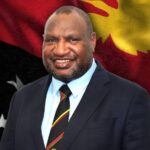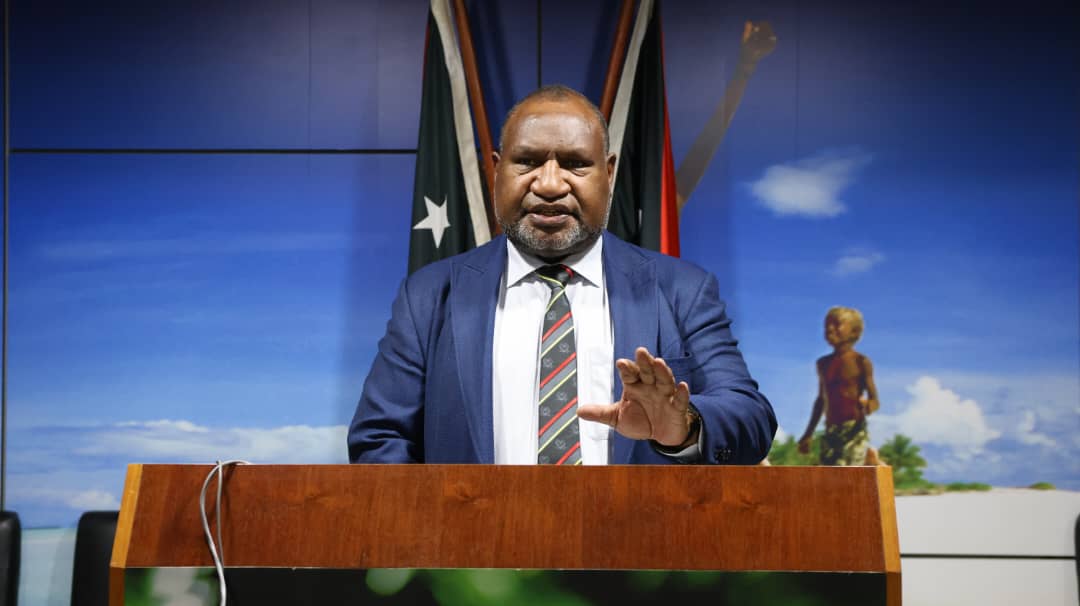Prime Minister Hon. James Marape has welcomed the findings of the Asian Development Bank’s Asian Development Outlook (ADO), April 2025 report, which confirms that Papua New Guinea’s economy is on a firm path toward recovery and resilience.
The ADB report released today shows the economy grew by 4.3% in 2024, driven by solid performance across both resource and non-resource sectors. This result is one of the strongest in the Pacific region and reflects the positive impact of ongoing reforms under the Marape-Rosso Government.
“The latest ADB report confirms what we’ve been working hard to achieve — a more stable and inclusive economy,” said Prime Minister Marape. “We are now seeing tangible outcomes from our reform agenda, especially in mining, agriculture, revenue collection, and inflation control.”
Strong economic momentum through reform and recovery
The report highlights significant gains in the resource sector, particularly the reopening of the Porgera gold mine, alongside strong output from coffee, copra, and fish exports in the non-resource sector. Despite challenges in LNG production and adverse weather affecting palm oil and cocoa, overall output rose.
Average growth in the non-resource sector more than doubled over the last three years compared to the previous decade, underscoring the Government’s commitment to economic diversification.
“We are working to ensure that economic growth is not just driven by the resource sector, but supported by agriculture, fisheries, and small businesses,” said Prime Minister Marape.
“We want inclusive growth that reaches every part of the country.”
Fiscal consolidation on track
The ADB commended the Government’s progress in fiscal consolidation. Domestic revenue rose to 18% of GDP in 2024, up from 14% in 2020, while the fiscal deficit narrowed to 3.9% — significantly lower than previous years.
Public debt stabilised at 53.9% of GDP and is projected to decline from 2025 onward, supported by prudent borrowing strategies and a continued focus on concessional financing.
“We are managing our finances responsibly. Our focus is on investing in development while reducing waste and avoiding unsustainable debt,” the Prime Minister said.
Record-low inflation and improved foreign exchange access
The report notes that inflation dropped to just 0.7% in 2024 — the lowest level in recent memory — supported by falling global prices, improved telecommunications competition, and tighter monetary policy.
The central bank’s shift toward a market-based exchange rate system significantly reduced foreign exchange shortages, allowing faster clearance of import orders and restoring investor confidence.
“We are creating a more stable and predictable economy for businesses and consumers. This is critical for long-term growth,” Prime Minister Marape said.
Reforming structural barriers to unlock long-term growth
While progress is clear, the ADB report points to key structural issues that continue to hold back growth, including power blackouts, law and order challenges, high business costs, and limited access to credit.
Prime Minister Marape acknowledged these concerns and reiterated the Government’s determination to address them head-on through targeted investments in infrastructure, law enforcement, and economic reform.
“We are investing in electricity, roads, and rural development. We are also strengthening law and order so businesses and families can operate in a safer environment,” he said.
Expanding financial access through digital innovation
The ADB highlighted the urgency of expanding financial inclusion, noting that only one-third of Papua New Guineans have access to formal banking services, and that women remain significantly underserved.
Prime Minister Marape said digital financial services, mobile banking, and a stronger national ID system would be key pillars of his government’s strategy to bring financial services to the grassroots.
“Digital inclusion is economic inclusion. We want every citizen to have access to financial tools, savings, credit, and payments — whether they live in a city or a remote village.”
Outlook for 2025 and beyond
Economic growth is forecast to remain steady at 4.2% in 2025 and 3.8% in 2026. Public debt is expected to decline further, and key reforms — including new tax measures and improved governance of state-owned enterprises — are projected to support continued fiscal stability.
Future investments, including the anticipated Papua LNG project, are expected to drive further economic momentum. However, the report also warns of risks, including law and order issues, climate-related disruptions, and financial sector vulnerabilities.
“As we approach 50 years of independence, we are laying the foundation for a stronger, more inclusive economy that will support our people for generations to come,” Prime Minister Marape concluded.





